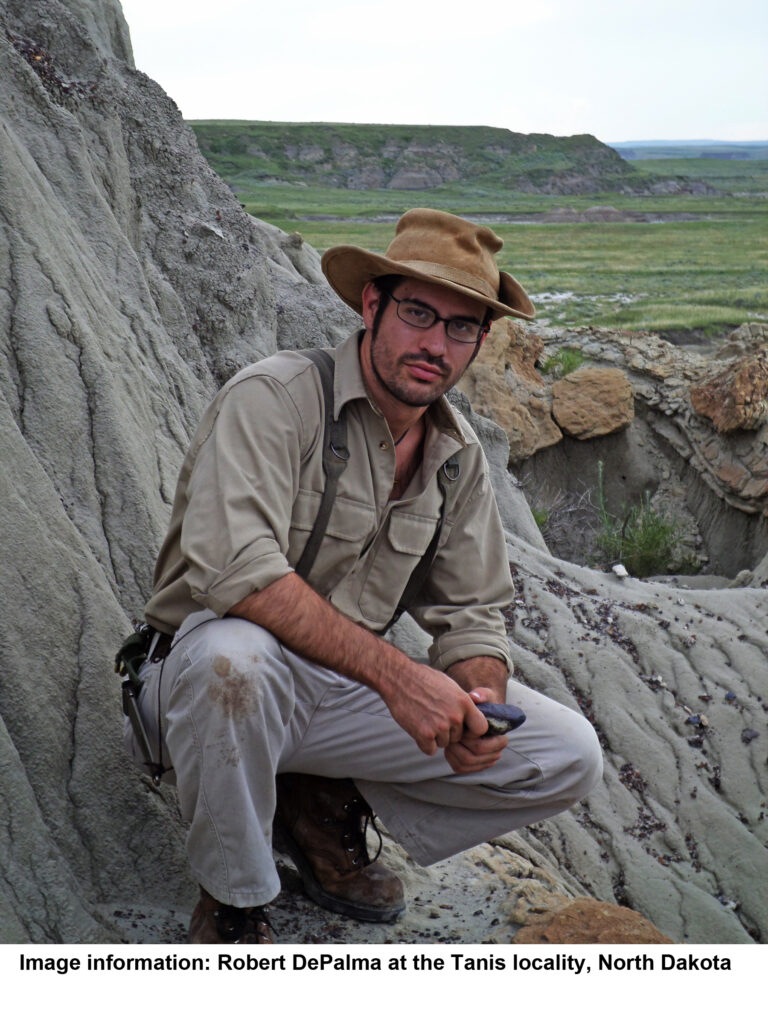Robert DePalma

Robert DePalma and his multi-national colleagues unlock the secrets of the past by using a variety of cutting-edge technologies to examine ancient fossils retrieved during remote expeditions. The most recent work concentrates on dinosaurs and other life from the late Cretaceous, focusing on the Chicxulub asteroid impact that triggered the Earth’s most recent global mass extinction event. His research of the unique Tanis site revealed a mass-death assemblage and ecological devastation buried just hours after the KPg impact. That geologic snapshot, just prior to the Cretaceous mass extinction, is critical to understanding how best to preserve Earth’s living biota during the current ecological crisis by using the valuable hindsight offered by the prehistoric record. Robert has led expeditions to the U.S. Western Interior for more than 23 years, was mentored by paleo artist John Gurche, Hollywood visual effects guru Stan Winston, and various professional scientists including Robert Bakker, Larry Martin, Mark Norell, and Walter Alvarez. He has collaborated with or aided museums worldwide, including the Florida Museum of Natural History, the University of Kansas Natural History Museum, University of Manchester, American Museum of Natural History, and others. Robert has contributed to numerous museum exhibitions, and most recently appeared on a landmark documentary about his Chicxulub impact research hosted by Sir David Attenborough entitled Dinosaur Apocalypse, in addition to multiple other documentaries for the National Geographic Channel and PBS/BBC, including T.rex: Ultimate Survivor and Dino Deathmatch. Robert is currently an Adjunct Professor in the Florida Atlantic University Geosciences Department and a Postgraduate Researcher at the University of Manchester, UK.
